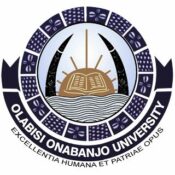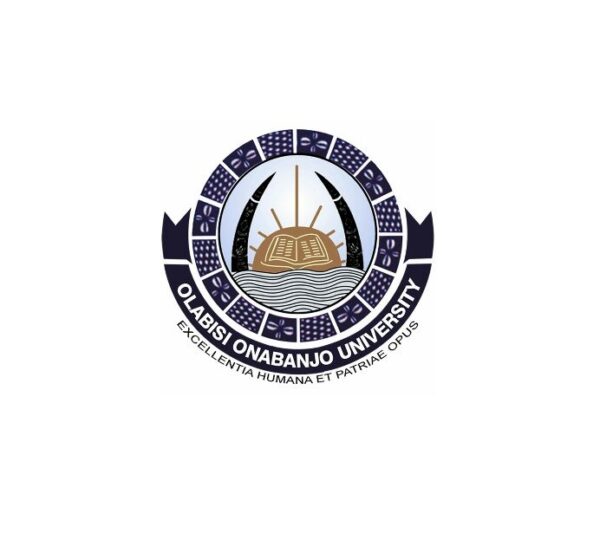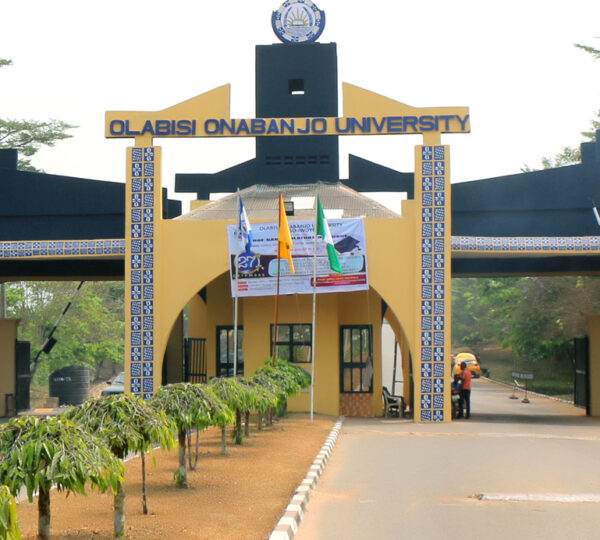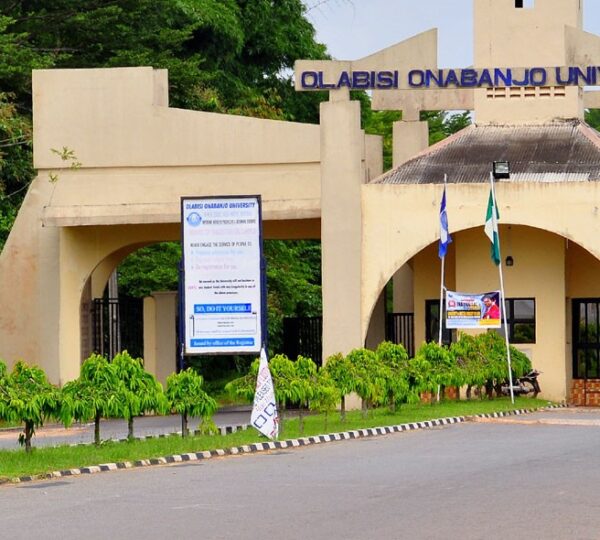- Education
- Ogun State, Nigeria

Olabisi Onabanjo University
HISTORY OF THE UNIVERSITY
History of Olabisi Onabanjo University, Ago Iwoye, Ogun State, Nigeria Chief Olabisi Onabanjo The civilian Government of Ogun State in 1979 expressed its desire and determination to establish more Polytechnics, Colleges of Education and a University for the State during its first term in office. Thus, by a letter dated 19th January 1982, the then Honourable Commissioner for Education convened the Planning committee for the establishment of Ogun State University.
On 16th March 1982, the planning committee headed by renowned Professor Akinlawon Ladipo Mabogunje, submitted its report. Consequently, in July, 1982, a bill to establish Ogun State University was debated and passed into law by the Ogun State House of Assembly. With the assent of the then Civilian Governor of Ogun State, Chief Olabisi Onabanjo, on 7th July, 1982 it became the “law to provide for the establishment, incorporation, constitution, laws and functions of a Provisional Council of the Ogun State University and for other matters incidental thereto or connected therewith.”
On Tuesday, 28th September 1982, the appointment of the pioneer Chairman of Council, the first Vice-Chancellor and other members of the Provisional Council was announced by His Excellency, the then executive Governor of Ogun State. The Provisional Council was formally inaugurated on Thursday, 28th October, 1982.
Ogun State University was patterned after the American State University system. In addition to adopting the “land grant” system, Ogun State University was established to lead in the identification of the state’s problems and also proffer solutions for them. To enable the university have a state-wide reach, Ogun State University was designed as a multi-campus institution, with College of Health Sciences in Sagamu (Remo), College of Engineering in Ibogun (Egba), College of Agricultural Sciences in Aiyetoro (Yewa), and the Main campus housing Faculties of Arts and Humanities as well as Natural Sciences in Ago-Iwoye (Ijebu).
On Monday, 31st January, 1983 the University opened its doors to its first set of students, numbering a little over 500 in all. On Friday, 30th January, 1987, the University held its first convocation ceremony, formally graduating 285 students who had completed and passed their examinations as at 17th September, 1986.
The foundation principal management officers of the university were: Professor A. L. Mabogunje – Pro-Chancellor and Chairman of Council, Professor J. O. Sodipo – Vice Chancellor, Mr. N. O. Sotoyinbo –Registrar, Mr. O. O. Ogundipe (Librarian, University of Benin) – Visiting Librarian, Mr. S. B. Onigbinde – Deputy Bursar, and Mr. A. O. Oyeledun – Deputy Director of Works.
Today, the University is operating in all its various campuses, with over 95% of its academic programmes accredited by NUC. Ogun State University, now Olabisi Onabanjo University has continued to produce high quality manpower that leads in the identification of global problems and proffering solutions to them.
OUR VISION
The Olabisi OnabanjoUniversity shall be the centre of academic excellence where “knowledge skills and value will be pursued relentlessly to ensure the flowering of human abilities, service to the Nigerian nation and the world at large in the wider context of traditional wisdom and culture”.
OUR MISSION
“To provide the best educational experience for our students and the public through excellence in teaching, research and creative activities and service to the state, society and the world at large”.
Our Strategic Objectives
OOU was established to discharge a tripod of responsibilities, namely, teaching, research and community service. This responsibilities entail that the University
Produces broadly educated men and women
Supplies specialist man power
Guards the flames of scholarship
Becomes part of the leadership of the new technological revolution; and
Produces ambassadors of a wider world.
It is against the above background that the University aspires to;
Have comprehensive strength in its undergraduates programmes;
Have postgraduate and professional programmes in a significant number of ares;
Have academic staff of national and international distinction;
Nurture a tradition of distinguished research and scholarship;
Cultivate a high quality work environment that not only conduces to high academic attainment but also encourages the finest essence of ethical Behaviours among staff and students; and
Create a culturally diverse and inclusive University community that continuously seeks ways of generating more wealth for the University through venue generation.
Core Values
In the context of share Vision and collective Mission, couple with the aspiration to assist Olabisi Onabanjo University to attain and remain at the cutting edge of research, learning and higher education in Nigeria and in the international arena, the following values will guide the work performance during this plan period and beyond.
Commitment, Competence, Teamwork and Self-motivation,
Initiative, Hardwork and Sacrifice
Loyalty and Sincerity
Integrity and Honesty,
Excellent Professional Service,
Client (Students Government, other Stakeholders)
Satisfaction and Delight;
Fool-proof Professional conduct;
Resources fullness and initiative;
Superior productivity;
Gender Consciousness and Sensitivity;
Transparency, Accountability and Due process;
Innovativeness and Positive Change;
Good Corporate Governance
Our Philosophy
OOU seeks to give useful learning to its students who will be encouraged to cultivate a world view that facilitates not only the continuous pursuit of academic and moral excellence but also developing their expertise and competence in reducing the quagmire of society’s disease ignorance and squalor. The University shall therefore be rooted in its community and act, at all times, as a beacon and symbol of the spirit of the community (local and national), guardian of its moral and a formulator of its hopes and aspirations. Accordingly, it shall cultivate a distinct tradition and character that reflect those essential values and nuances that give the host and national communities their distinctive flavour and identity.
FACULTIES/DEPARTMENT
- Accounting
- Agric-Extension & Rural Sociology
- Agricultural Economics & Farm Management
- Agricultural Engineering
- Agriculture
- Anatomy
- Applied Zoology
- Banking & Finance
- Biochemistry
- Business Administration
- Business Administration
- Business Education
- Chemical Sciences
- Chemistry
- Christian Religious Studies
- Civil Engineering
- Civil Law
- Computer Engineering
- Computer Science
- Crop Production
- Economics
- Education & Biology
- Education & Chemistry
- Education & Computer Science
- Education & Economics
- Education & English Language
- Education & French
- Education & Geography
- Education & Integrated Science
- Education & Mathematics
- Education & Physics
- Education & Political Science
- Education & Social Studies
- Education & Yoruba
- Education Accounting
- Electrical /Electronics Engineering
- English Language
- Fine/Applied Arts
- Fisheries
- Forestry & Wildlife
- Forestry Wildlife & Fisheries
- French
- Geography & Regional Planning
- Geology
- Guidance & Counselling
- Health Education
- History & Diplomatic Studies
- Home & Hotel Management
- Home Economics
- Industrial & Labour Relations
- Industrial Chemistry
- Islamic Studies
- Linguistics
- Mass Communication
- Mathematics
- Mechanical Engineering
- Medicine & Surgery
- Microbiology
- Music
- Nursery & Primary Education
- Nursing
- Performing Arts
- Pharmacology
- Pharmacy
- Philosophy
- Physics
- Physiology
- Plant Science
- Political Science
- Psychology
- Public Administration
- Secretarial Administration
- Sociology
- Sport Science
- Statistics
- Teacher Education Science:
- Transport Planning & Management
- Urban & Regional Planning
- Yoruba
Business Amenities
- Car Parking
- Funding: State
Tags
Contact Information
Opening Hours
Contact Business
Contact Business
Additional Information
Additional info









